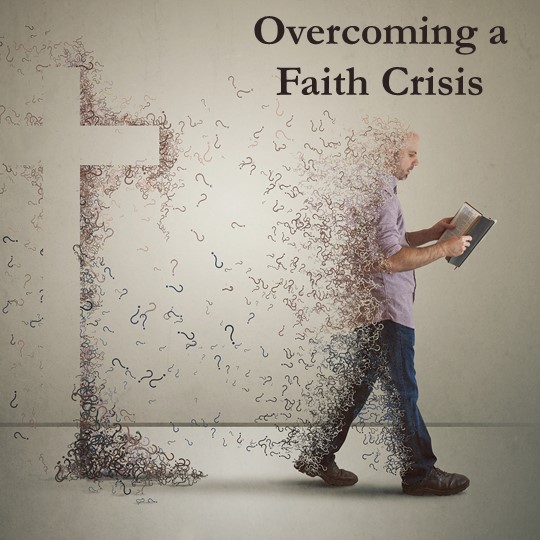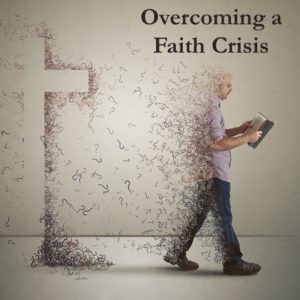
It was insane. People coming from everywhere to see what was happening. Many walked miles; some were walking for days. There were all kinds of people coming to see the events unfold. Rich, poor, status, vocation, it didn’t matter they wanted to see and hear for themselves. Some some were coming to see the spectacle, to make fun and laugh. However, most came because they were looking for hope. They needed to know that they were not forgotten, and that God still cared for them.
John was strange, like the prophets of old. He lived in the desert. We are told his clothes were rough, made from camel’s hair. He ate locust and wild honey. His message was simple: Repent, the Kingdom of God is coming. Amazingly, the people responded. They came from all over the region, confessing their sins and getting baptized by John in the Jordan River.
John’s birth was miraculous; his calling was unique (Luke 1:57-80). His message was for everyone. He was calling the religious leaders out for their hypocrisy. He encouraged the crowd to love deeply. He urged the soldiers to act justly. He was heralding the Kingdom, pleading for people to repent. The King was coming (John 1:29).
Jesus confirms John’s unique role in history and spoke highly of him. There is an Old Testament prophecy that talks about one of the great prophets, Elijah, returning to Israel (Malachi 4:5-6). Jesus said that John the Baptist fulfilled this prophecy (Matthew 17:12-13). In one of Jesus’ sermons, he told his listeners that no one had been born that was greater than him (Matthew 11:11).
When I consider John’s life, I am more than a little awestruck. A mountain man of a figure, living in the desert and calling the nation to repentance. He was a man that fulfilled an Old Testament prophecy. Jesus called him the greatest man to ever live. His ministry would eventually reward him with prison and martyrdom (Mark 6:14-29). John the Baptist was a spiritual giant.
The Faith Crisis
I would be curious to know what John was thinking as he was being arrested and taken to prison. Most Israelites of his day were anticipating the coming of the Messiah and expecting a political revolution. We only have speculation, but I suspect he believed his detainment was temporary. It wouldn’t be long before Jesus took his throne, and he would be released.
As days turned into weeks that turned into months, it seems that doubt about Jesus crept into his mind. “Why hasn’t Jesus come for me?” Why has Jesus abandoned me?” “Has God forgotten about me?” “Is Jesus really the King?” “Is there someone else?”
Have you ever experienced those questions?
We can’t know for certain, but we do get a glimpse of John’s heart. As John’s confidence in Jesus faded, the news of Jesus’ ministry reached his ears. His curiosity was ignited, the hope of the Messiah began to burn again. He sent his disciples to find out the truth. Is Jesus the King?
Jesus told John’s disciples to go back and report back to John what they saw, quoting a passage from the Scroll of Isaiah (Isaiah 29:18-19).
And he answered them, “Go and tell John what you have seen and heard: the blind receive their sight, the lame walk, lepers are cleansed, and the deaf hear, the dead are raised up, the poor have good news preached to them. And blessed is the one who is not offended by me.” (Luke 7:22–23, ESV)
These are the things John needed to hear for his faith in Jesus to be restored. I trust the report and the words of Jesus strengthened John’s resolve (Luke 7:18-22).
It is encouraging to know the “greatest born of women” walked through the shadow of doubt. There is comfort for our own hearts to know that spiritual giants like John the Baptist wrestle with the things that you and I wrestle with.
If you are following Jesus, like John, you will experience doubt. Engaging doubt is part of growing in faith. You don’t have to disregard tough topics or hard conversations. Jesus can handle your doubts and your questions. Jesus boldly claims he is the way, the truth, and life (John 14:6). If Jesus is truth, his claims should be examined, his life, death, and resurrection should be scrutinized.
The key for dealing with doubt is honesty. A person must be honest with the text or evidence, but they must also be honest with themselves. Here are some guiding principles in the search for truth (Aldridge):
- Do you really want to know the truth? Sometimes ignore truth because it is easier to not believe.
- Questions are natural. Jesus’ ministry was full of people who had questions: His disciples, the crowds, his critics, etc.
- Christianity welcomes investigation. You are not the first person to ask a question and you certainly won’t be the last. Seek answers.
- There is a point of faith. People never make decisions on knowing all the facts because it is impossible to know everything. However, we can see where the evidence is leading to logical conclusions.
How to Overcome a Faith Crisis
Every situation different, every doubt is unique. Nevertheless, there are certain themes as to why people have doubts. The key to overcoming these doubts is to run directly at them, engaging in the very thing that causes doubt (Wohlenhaus):
- Doubt from emotion. This occurs when someone is hurt by people within the church. The solution is fellowship.
- Doubt from ignorance. This happens when we believe false information about Jesus. The solution is an investigation of facts.
- Doubt from assumption. This develops when we assume that by following Jesus, we will receive certain things. The solution is clear thinking.
- Doubt of the will. This arises when we know our lifestyle in contradiction with the Word of God. The solution is repentance.
When John’s disciples went to Jesus and asked if he was the one to come, Jesus pointed them to himself. He challenged them to examine his life and come to a conclusion. This is still true for us today. When we get stuck in the circumstances of life, when the brokenness of this world seems overwhelming, or when people fail us, our best course of action is to look at Jesus, the founder and perfecter of our faith (Hebrews 12:2).
Jesus will never fail you.
